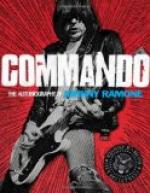The Waterbergers and Zoutpansbergers, who were most undisciplined, had descended through the kloof in quest of booty. But the Krugersdorpers, formerly notorious for their rough behaviour, were now the most orderly, and did not descend before all the men were collected. The kloof was strewn with bodies of khakies, who were sent up as reinforcement and pitilessly shot down by the burghers. The little stream of water was red with blood, so that we could not even quench our thirst. Some of the khakies had fallen from the high cliffs, where they had to lie unburied—like the soldiers on Amajuba in 1881.
We led our horses to the opening of the kloof, and then galloped into camp under the thundering noise of the shells that the enemy were firing at us from the distance. There was no control possible among the burghers. Each one loaded his horse with whatever he could lay his hands on, and there was no thought of following up the retreating enemy. They did not leave us undisturbed in our glory, but aimed lyddite at us, which had the desired effect, that we in our disorder did not storm the front positions, but retreated in the direction of our camp, a quarter of a mile in among the trees. There Veld-Kornet Klaassen ordered his men to off-saddle and give the horses a rest. Meanwhile the camp was burnt, flames arose in all directions, and thousands of cartridges exploded.
After we had watered our horses in a neighbouring spruit we lay down to rest. But ere long General De la Rey came galloping into our midst with a lash in his hand, calling to us whether we were not ashamed to lie there doing nothing, instead of following up our advantage now that we had the chance, when otherwise the enemy would ill-treat our women and children and burn down our homes. One of our corporals rather impertinently informed De la Rey that he served under another General, and would obey no orders but his. De la Rey thereupon rode up to him and gave him a heavy cut with his lash. I went up to the General, and told him that we were quite willing to fight, and had only off-saddled for a rest by order of our Field-Cornet. In his rage he lifted his lash, but, recognising me, lowered it again. If I had aimed at getting a cut from him, I might have called out like the Dutch farmers, who got a box on the ear from Peter the Great for pressing too closely upon him while he was building ships at Zaandam: ‘I have had one too! I have had one too!’ We then rode with the General to the burnt camp. The enemy had not found the game worth the candle, and had saved their shell for a more favourable occasion.
One can imagine De la Rey’s indignation when he saw that waggons, provisions, and ammunition were nearly all burnt. He pointed out to us how ammunition and guns were required on every side. General Beyers, whom we met there, excused himself by explaining that he had ordered only those things to be burnt that we did not require. We then rode to the other positions on the opposite side of the camp, but the enemy were in full flight, followed by an occasional burgher.




